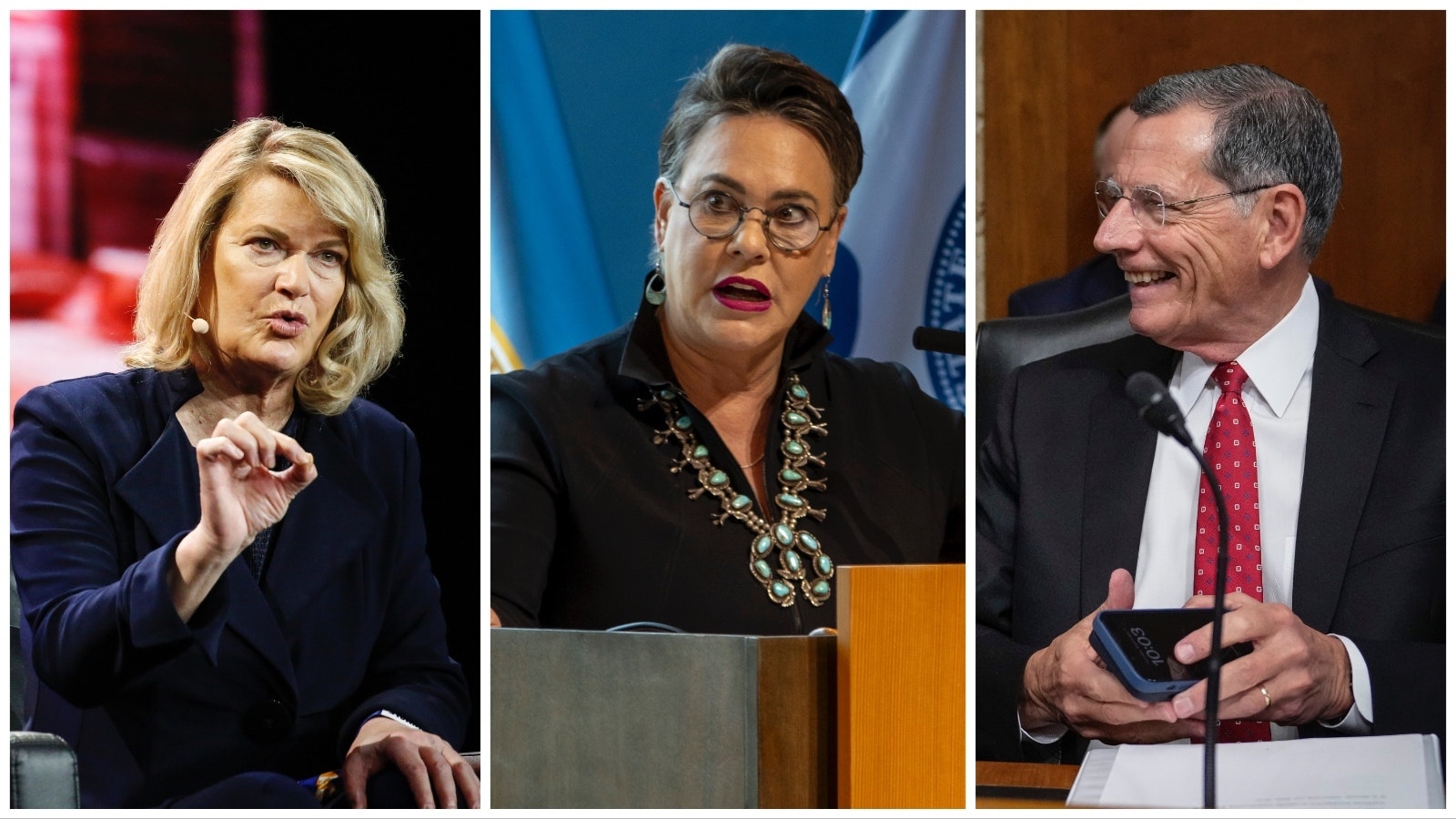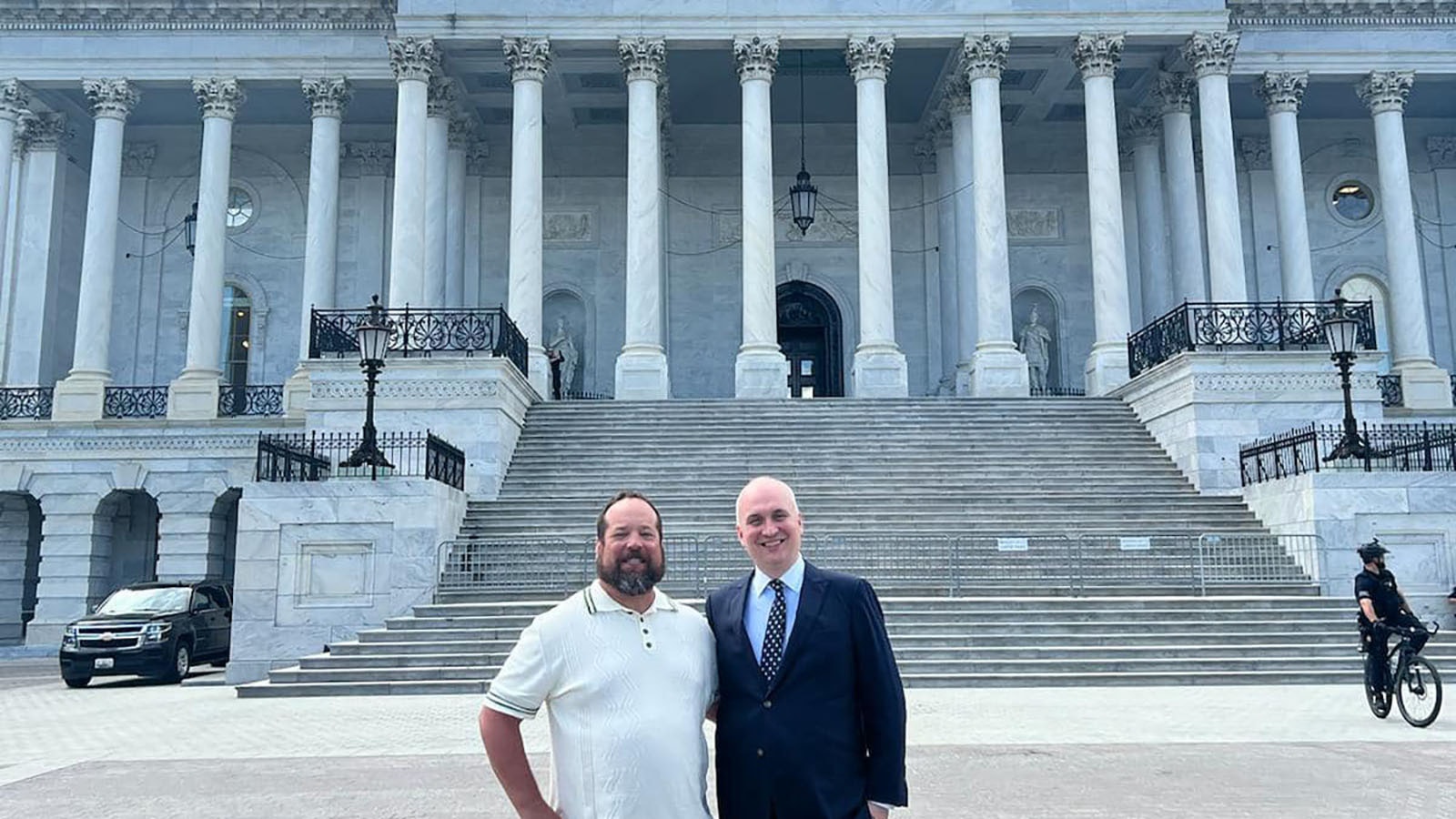Wyoming’s congressional delegation took a clear and united stand against giving money to Ukraine for its war against Russia, with all three voting against the $95 billion foreign aid package President Joe Biden signed Wednesday that includes about $61 billion for Ukraine.
“I cannot vote for a national security bill that neglects the security of our nation,” U.S. Sen. John Barrasso told Cowboy State Daily. “The southern border remains wide open to terrorists and criminals who wish to do us harm. The safety and security of the American people is my No. 1 priority.”
Barrasso had previously supported giving money to Ukraine for its war effort, but in 2023 warned that America “cannot shoulder the burden” of supporting Ukraine alone.
Wyoming was the only state to have its entire delegation vote against the funding, as Sen. Cynthia Lummis and U.S. Rep. Harriet Hageman also voted against it.
Lummis, like Barrasso, criticized the spending in relation to Biden’s handling of the southern border.
“One of the main things my constituents object to is we're spending money for every country in the foreign aid bill except our own,” Lummis said on the Senate floor Tuesday. “We will not defend our southern border. We will not spend money to protect our country from the invasion of terrorists.”
Barrasso and Lummis voted against an earlier version of the foreign-aid bill that included $20.2 billion in border security measures.
What Does It Include?
On Tuesday, the U.S. Senate passed the supplemental package on a 79-18 bipartisan vote. The package combined four bills that were approved by the U.S. House on Saturday, allotting nearly $61 billion for Ukraine, more than $26 billion for Israel and more than $8 billion for countries in the Indo-Pacific region.
The measure also includes a provision that could result in TikTok being banned in the United States unless its Chinese parent company sells the video-sharing platform within nine months. Hageman had supported this provision as a standalone measure.
But Hageman couldn’t swallow the fact that the Ukraine money was being combined with money for Israel money in one bill, the latter a cause she also supports.
“These two very different conflicts highlight why these bills should not be combined,” she said in a press release. “It is infuriating to see these bills combined to make the Senate Foreign Aid Supplemental that House Republicans, including the speaker, had said was ‘dead on arrival’ in the House of Representatives just a few short months ago.”
Piazza’s Perspective
Cody resident Nick Piazza has been one of Wyoming’s most outspoken advocates for Ukraine in its war against Russia.
Piazza, owner of Sleeping Giant Ski Area, also owns a business in Ukraine and spends a significant amount of his time in that country.
Piazza was on Capitol Hill this month lobbying for the Ukraine spending package and said he met with all three members of the Wyoming delegation about it, along with Mike Pompeo, the former U.S. secretary of state under former President Donald Trump.
Although he firmly supported the $61 billion in aid that he described as a “very good thing” for Ukraine in its war with Russia, Piazza said he understands that the Wyoming delegation is in a difficult position.
“We all understand the concerns of the Wyoming delegation and we know they all have to listen to their constituents,” he said.
But he also believes the issue of giving money to Ukraine has been unnecessarily politicized in America. Piazza used the example of a Mississippi congressman he met with who said he supports their cause, but couldn’t support the Ukraine money as he’s been receiving death threats about it from constituents.
“The goal in politics is not to let the perfect get in the way of the good,” he said. “People are so focused on certain things that they are losing sight of the bigger picture.”
Piazza has helped bring Ukrainian refugees to Cody and has used Sleeping Giant as a platform to bring attention to the ongoing conflict in Ukraine.
“Sometimes, we’ve maybe done a little too much Ukraine stuff on our platform, but it allows us to have a place to mostly just say thanks to the local community for supporting our cause,” Piazza said.
The Issue
Part of her consternation with providing money to Ukraine, Hageman said, also has to do with oversight of how the money is used.
“We have already given Ukraine over $110 billion in its conflict against Russia,” Hageman said. “We have had minimal accounting and oversight related to these funds but do know that Ukraine is plagued by government corruption. We do not know Ukraine’s strategy to defeat Russia, nor do we know what the end game is for the conflict.”
Piazza said this is a false argument as minimal fraud has been identified with the money already given to Ukraine, and what little has been found has been connected to American contractors.
He also believes Biden has fallen short with explaining the need for the funding to the American public, and should be promoting the fact that producing more munitions will create more jobs.
“The president needs to do a better job of explaining what’s going on,” he said.
Within the spending package is the REPO Act, which allows Biden the legal authority to seize billions of dollars worth of Russian state assets to help Ukraine.
After Russia started its war against Ukraine, the U.S. and its allies immediately froze $300 billion worth of Russian foreign assets. That money has been sitting untapped, but roughly $5 billion of it is located in the U.S.
Although the U.S. isn’t expected to use any of this money even though it’s been given the permission to do so, according to Politico, Piazza said he would support it.
“The taxpayers can’t continue to pay,” he said. “This is taking that burden off the American taxpayer.”
Leo Wolfson can be reached at leo@cowboystatedaily.com.






